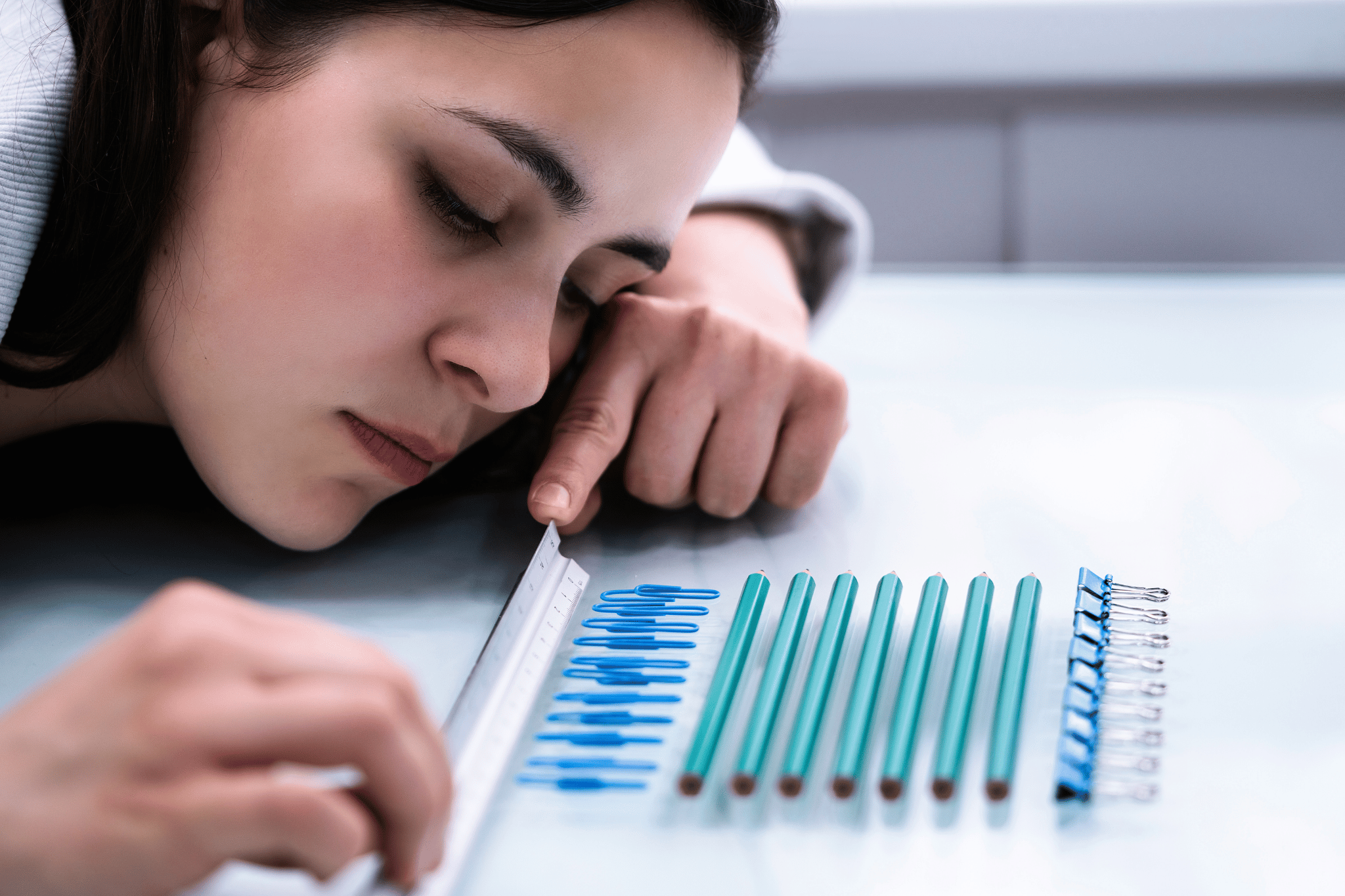Notice These Symptoms of OCD in Teens for Early Intervention
Obsessive-Compulsive Disorder (OCD) is a mental health disorder that can start in childhood or adolescence. OCD impacts behavior, school performance, and relationships. Teens with OCD may experience distress, fear, and stress that interfere with daily life. Recognizing symptoms early allows parents, caregivers, and healthcare providers to help teens access support.
What Is OCD?
OCD is a chronic mental health condition involving obsessions (unwanted thoughts) and compulsions (repetitive behaviors). It is a type of anxiety disorder linked to brain function and serotonin imbalance. Research shows that OCD is connected to genetics, childhood trauma, and changes in the brain.
OCD is a recognized medical disorder, not a personal weakness or flaw. It is important to treat it like any other disease that affects quality of life.

What Is Exposure and Response Prevention?
Exposure and Response Prevention (ERP) is a form of exposure therapy and the leading treatment for OCD. This therapy gradually exposes the patient to feared situations while helping them resist performing rituals. ERP helps rewire the brain and reduce compulsive behavior over time.
ERP is delivered by a licensed mental health professional trained in psychology, therapy, and anxiety management. ERP is supported by clinical research and improves long-term outcomes.
Obsessions: What Are They?
Obsessions are intrusive, unwanted thoughts that cause distress. These thoughts often center on contamination, cleanliness, violence, aggression, or taboo topics. Teens may obsess over homework, moral issues, or uncertainty.
Examples include:
Worrying about spreading germs or needing to use an antibiotic after touching something dirty
Fear that something bad will happen unless they say a prayer or repeat a phrase
Disgust about cleanliness, leading to excessive hand washing or washing routines
Intrusive thoughts about harming others, even if they never would
These thoughts are not voluntary. They are symptoms of a mental disorder, not deliberate behavior.
Compulsions: What Are They?
Compulsions are repetitive behaviors or mental acts that teens perform to reduce anxiety or prevent harm. These actions are usually excessive and not realistically connected to the fear.
Examples of compulsions:
Washing hands for hours due to contamination fears
Checking locks or doors repeatedly
Avoiding places or people to prevent a feared event
Counting, tapping, or repeating words for attention or relief
Asking repeated questions to a caregiver or parent for reassurance
These rituals can take up hours and cause distress if interrupted. Teens often describe feeling trapped in a cycle of fear and compulsive actions.
What Is Perfectionism?
Perfectionism is common in teens with OCD. It involves extreme standards, fear of mistakes, and repeated efforts to “get it right.” Teens may redo homework for hours, avoid starting tasks, or feel overwhelmed by uncertainty.
While perfectionism isn’t always OCD, when it causes distress or functional problems, it may be a sign of the disorder.

How Do You Recognize OCD in Children?
OCD in youth often appears as stubborn routines, emotional outbursts, or school struggles. Teens may not know how to explain their feelings or may hide their symptoms due to shame or confusion.
Watch for:
Excessive washing, cleanliness, or rituals before bed or school
Avoidance of certain tasks due to thoughts or contamination fears
Asking for constant reassurance from a family member or health professional
Irritability when routines are disrupted
Delays in leaving the house due to checking behaviors
Obsessive focus on cleanliness, sleep, or homework
Behaviors similar to oppositional defiant disorder, but driven by anxiety
Some teens may also display signs of tic disorders, hoarding disorder, or traits of personality disorder.
Diagnosis and Tests
A proper diagnosis comes from a mental health professional such as a child psychiatrist, psychologist, or licensed therapist. This includes a psychological evaluation, interviews, and input from parents, teachers, and the patient.
Teens are assessed using tools based on DSM-5 criteria and other evaluation forms. These tools help distinguish OCD from other mental or pediatric conditions like bipolar disorder, panic disorder, generalized anxiety disorder, and substance abuse.
How Is OCD Diagnosed?
Diagnosis involves checking for:
Obsessions, compulsions, or both that are time-consuming or distressing
Recognition by the teen that these thoughts or behaviors are irrational
Impact on daily functioning, such as school, family, or friendships
A primary care provider may refer the teen to a mental health professional or healthcare provider for further diagnosis. The team may rule out other health problems, including cancer, before confirming OCD.

Management and Treatment
Treatment combines therapy, education, and sometimes medication. Support from caregivers and family members is essential. Without treatment, OCD can worsen and reduce a teen’s quality of life.
How Is OCD Treated?
Treatment options include:
Exposure therapy (ERP): Helps break the cycle of obsession and ritual
Cognitive Behavioral Therapy (CBT): Teaches skills for managing thoughts, feelings, and coping
Medication: SSRIs like fluoxetine and sertraline are antidepressants often used for teens. These are selective serotonin reuptake inhibitors (SSRIs)
Supportive psychology and psychiatry services
Family education to reduce enabling and increase understanding
Early care improves long-term outcomes. Teens treated with ERP and antidepressant therapy often see significant progress.
If your teen is showing signs of OCD, contact Adolescent Mental Health in Orange County. Our licensed mental health team provides expert therapy and diagnosis in a safe setting. We accept most insurance plans and help families access the information and care they need.
We offer evidence-based treatment that supports every patient, family, and caregiver through healing.
Interested in learning more?
Visit our center for more details, or listen to our latest podcast on OCD and teen mental health. Our team is here to answer questions, guide you to the right treatment, and help your teen regain confidence, structure, and peace of mind.
Let us help your teen feel better—starting today—with compassionate, proven medicine, therapy, and support.
Frequently Asked Questions
1. What causes OCD in teens?
OCD in teens often develops from a combination of genetics, brain chemistry, and environmental stress. Teens with a family history of OCD or other mental health disorders are at higher risk. Low levels of serotonin and overactivity in certain brain areas can also contribute. In some cases, events like childhood trauma, illness, or ongoing stress can trigger symptoms. OCD is not caused by parenting style or personal weakness—it is a recognized mental health condition.
2. Can OCD go away without treatment?
OCD symptoms usually do not go away on their own. Without proper treatment, they may become stronger and interfere with school, sleep, and daily routines. Teens may try to hide their compulsive behaviors, which adds emotional pressure. Exposure therapy (ERP) and sometimes medication are the most effective ways to reduce symptoms and improve quality of life. Early intervention helps prevent long-term impairment.
3. How is OCD different from being a perfectionist or neat?
Liking order or being organized does not mean a teen has OCD. OCD involves intense anxiety, unwanted thoughts, and repetitive rituals that feel necessary to reduce distress. These behaviors take up time and disrupt normal life. Perfectionism may overlap with OCD but is often more about high personal standards, while OCD includes patterns linked to fear, contamination, or taboo thoughts. Only a mental health professional can make an accurate diagnosis.
4. What should a parent do if they suspect their teen has OCD?
If your teen shows signs of OCD, such as excessive hand washing, checking behaviors, or distress from thoughts, it is important to seek help. Start by speaking with your pediatrician or a licensed mental health professional for a full evaluation. Early diagnosis leads to better outcomes. Support your teen by staying calm, listening, and avoiding criticism. Getting the right information, therapy, and care from a trusted healthcare provider can help your teen manage OCD and improve their emotional well-being.









